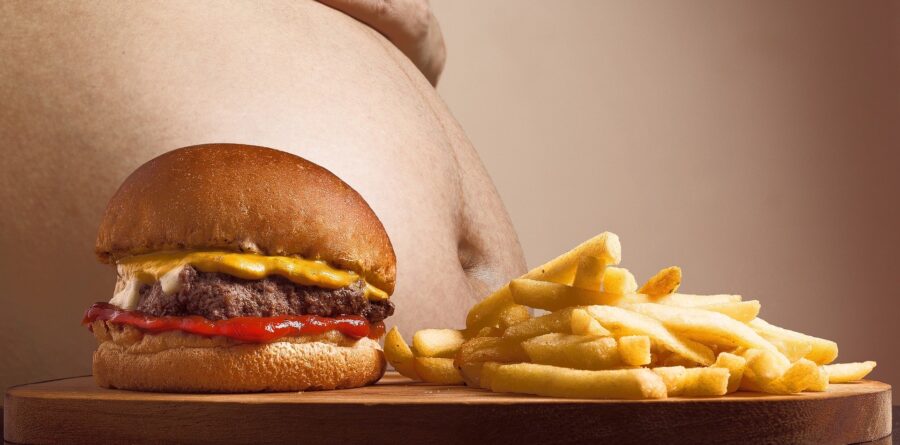Why the government’s latest obesity strategy is set to fail
28/07/2020 - Natasha is Wide Eyed

The government has unveiled a plan to tackle obesity in light of the current COVID-19 pandemic, Natasha Hodge of Wide Eyed Nutrition takes a look at why it will not work without a radical overhaul in Nutritional Advice.
Here we go again. Bold statements such as ‘ a ban on junk food adverts before 9pm’ ‘restrictions on where foods high in fat and sugar can be promoted in store’, ‘calorie counts on all takeaway menus’ and ‘ a ban on buy one get one free offers’ have been announced this week.
If you stop seeing adverts for junk food would you forget they exist? If there are no special offers would that stop you buying the foods at normal prices? Though well intentioned, I fail to see how these plans are going to help impact obesity on any level.
You’d be right in thinking you’ve heard similar ideas before. Did it reverse the obesity crisis? No, it did not and nor will it now.
I do commend them for highlighting the fact that if you are overweight or obese you are exponentially more likely to have a severe response and possibly die from COVID-19 and spotlighting health in general can only be a good thing. But theses actions will not stop people eating the items in question.
Having read the full report by Public Health England which has led to this government action, titled “Excess weight and COVID-19, insights from new evidence” it confirms that obesity has an adverse effect on how the body copes with this coronavirus infection.
Findings include:
“patients living with overweight or obesity (BMI over 25), compared with patients with a BMI under 25 are more likely to be admitted to intensive/critical care and to require advanced treatment for severe COVID-19 symptoms”
“patients with COVID-19 living with overweight (BMI over 25) or obesity (BMI over 30), compared with patients with a healthy weight (BMI 20 to 25) are more likely to be hospitalised if infected with COVID-19”
Unfortunately, obesity contributes to all of the health issues we have been facing with increasing regularity; cancer, type 2 diabetes, heart disease and stroke. Why would COVID-19 be any different?
This report supports the argument that weight loss of even as little as 5lbs improves health. It states:
“Supporting people who are overweight or living with obesity to lose weight, together with interventions to prevent or slow weight gain across the population will plausibly reduce future population risks of COVID-19. Moreover, there is robust evidence these interventions will bring wider health benefits to individuals and reduce pressures on the NHS due to overweight and obesity.”
But Public Health England and its advice, alongside the NHS and the guidelines that have been in the public domain for 40 years are what caused the rise in obesity in the first place.
In the report, Public Health England say “Drivers of excess calorie intakes and low levels of physical activity, within the environment people live, will need to change at a national and local level to support population-level weight change”.
As I’ve said in previous articles and have been saying for the past 8 years ever since I started to question nutritional advice, the move more eat less model DOES NOT WORK. If it were that simple we wouldn’t even be having to implement an obesity strategy at all would we?
The report goes on to conclude that “In combination with calorie deficit diets, physical activity can support maintenance of weight loss”. But if you are eating the WRONG foods you will not want to exert energy as exercise.
We’re back to the definition of insanity is doing the same thing over and over and expecting different results.
The junk foods themselves will still cause you to crave them, increase your blood sugar level and cause your body to reserve energy due to the lack of nutrients.
The report shows that lockdown saw the consumption of cakes, biscuits and confectionary increase by 42% and alcohol purchases were up 29% on the same period last year.
Both categories have an acceptance by society as comforts in times of stress, lockdown being the biggest stressor we’ve seen in recent times. Yet both contribute to storing sugar as fat, leading to obesity, leading to a risk of complications in ill health including COVID-19. I’ll wager a reduction of adverts or offers will not reduce consumption!
With the focus on obesity it also has the added effect of those within the normal weight range wrongly thinking that they are immune to severe reactions to COVID-19, people of normal weight have still succumbed. Obesity is a symptom of our chemical food environment, but everyone who eats a standard western diet can be adversely affected. Cancer, diabetes, heart disease and stroke also effect people of normal weight, as does COVID-19.
What is the answer?
A shift to condemn processed food and foods that are high in sugar. These have been engineered and marketed to light up pleasure receptors and leave you wanting more. The real culprits are chemicals masquerading as food (including low fat products promoted by Public Health England and the NHS) and making you store excess sugar as fat. Confusion comes from years of bad advice and focussing on the wrong foods.
The fantastic news is that if you really want to steer yourself towards a path of better health, with weight loss as a bonus, all you need to do is stick to low sugar foods. Without excess sugar your body will utilise its stored fat and find it ideal weight while you go about the business of getting through this strange and uncertain period. Concentrate on eating fats that naturally occur in the foods you eat that will comfort and nourish you. Full fat meat, fish and dairy plus nuts and veg is all you need.
Need some free recipe ideas check out my website? Why not try this quick and easy low carb pizza to get you started? Simply click on the picture to see the recipe.
If you have a food and health question for Natasha please email her natasha@wideeyednutrition.com or visit https://wideeyednutrition.com/
All articles on this news site are submitted by registered contributors of SuffolkWire. Find out how to subscribe and submit your stories here »




